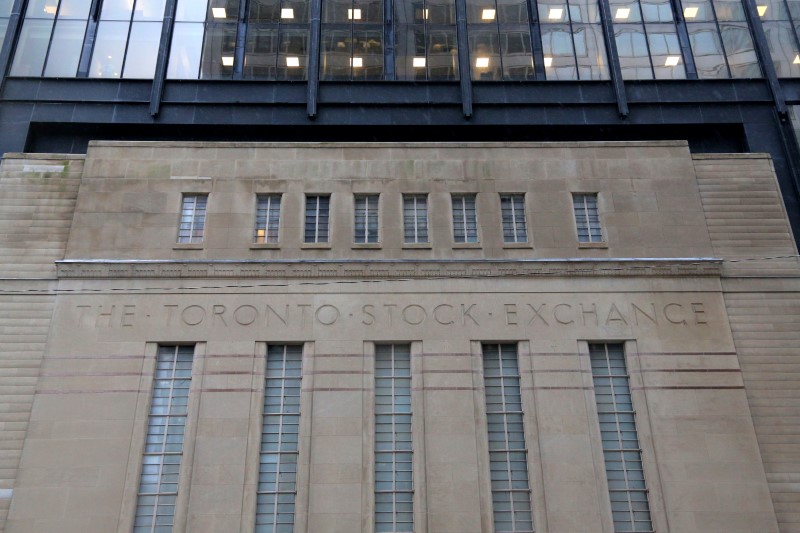US LNG exports surge but will buyers in China turn up?
Investing.com - Canada’s main stock index pulled back from a record high on Wednesday after the Bank of Canada held its key benchmark rate steady and investors remained cautious amid ongoing U.S. tariff negotiations and the impact of wildfires in Alberta.
The Bank of Canada maintained its key benchmark rate at 2.75%, citing the need to assess the effects of U.S. trade policy. An indication of another rate cut was there in case the economy weakens due to tariffs.
This decision marks the second consecutive time the central bank has stayed on the sidelines following an aggressive cutting cycle that reduced rates by 225 basis points over nine months.
The Toronto Stock Exchange’s S&P/TSX Composite finished down 97.6 points, or 0.4%, at 26,329.00.
As of the 4:00 ET close, the S&P/TSX 60 Futures fell 6.9 points, or 0.4%, at 1,573.11.
Oil prices rose during the session, driven by wildfires in Alberta’s oil-rich regions and the prospect of continued sanctions on OPEC+ members Russia and Iran.
A move by Facebook-owner Meta Platforms Inc (NASDAQ:META) to reach an agreement with Constellation Energy Corp (NASDAQ:CEG)to keep one of the utility’s reactors in Illinois operating for 20 years also gave a lift to uranium stocks.
Energy is a major contributor to the TSX index, accounting for around 17% of its weighting. Gains in the sector fueled the climb on Tuesday.
U.S. markets mixed
U.S. stock indexes closed with mixed results, as investors bet on the movement in trade negotiations and looked ahead to Friday’s critical employment report, adding to the previous session’s solid gains which were driven by optimism that potential talks between Trump and Chinese President Xi Jinping could revitalize trade negotiations.
Closing data showed theDow Jones Industrial Average lost 91.9 points, or 0.2%, the NASDAQ Composite added 61.5 points, or 0.3%, and the S&P 500 finished mostly flat, gaining 0.01% on the day.
A reported deadline for U.S. trading partners to submit their "best offer" to avoid punishing import tax rates ends later Wednesday, and so far, only Britain has struck a preliminary trade agreement with the U.S. during Trump’s 90-day pause on a wider array of tariffs.
The White House has said that President Donald Trump will speak with Chinese counterpart Xi Jinping this week, just days after Trump accused Beijing of violating a prior agreement to ease tit-for-tat levies. China has refuted the allegations.
Semiconductor stocks continued gains, as CoreWeave rose 8.7%, On Semiconducor jumped 6.2%, Broadcom (NASDAQ:AVGO) rose 1.7%, and Nvidia (NASDAQ:NVDA) rose 0.5%, lifting the Nasdaq into the green.
Earnings reports from Wednesday evening bolstered MongoDB (NASDAQ:MDB) stock, as the data storage company lifted guidance and hiked its stock buyback, pushing shares up 12% in the aftermarket.
Chinese E-commerce stocks were boosted in U.S. trading, as preliminary sales data reported on by SCMP showed substantial numbers for Alibaba (NYSE:BABA) and JD.com.
Gold prices choppy
Gold prices traded upwards in North American markets as risk appetite was boosted by speculation over potential talks between Trump and Xi.
However, safe-haven demand for bullion remained underpinned by uncertainty over the U.S. economy, especially after Trump moved to double tariffs on steel and aluminum starting Wednesday.
An escalation in military action between Russia and Ukraine, along with reports that Iran-U.S. nuclear talks were faltering, also kept markets largely geared towards the traditionally perceived security of the yellow metal.
XAU/USD was up 0.6% at $3,372.35 an ounce, while gold futures for August moved 0.6% higher to $3,396.40 per ounce by 5:05 ET.
Crude Oil WTI Futures drops after gains
Oil prices fell below the flatline, retreating from recent highs generated after OPEC+ increased output amid concerns that tariffs will hit global economic activity.
At 5:05 ET, Brent Oil Futures were down 1.2% to $64.83 a barrel, and U.S. West Texas Intermediate crude futures were 1.1% lower at $62.74 per barrel.
Both benchmarks climbed about 2% on Tuesday to a two-week high, driven by worries over supply disruption from Canadian wildfires and expectations that Iran would reject a U.S. nuclear deal proposal key to easing sanctions on the major oil producer.
Additionally, the Organization of the Petroleum Exporting Countries and allies, known as OPEC+, agreed to keep output increases in July at 411,000 barrels per day, which was less than some in the market had feared.
(Pratyush Thakur and Scott Kanowsky also contributed to this article)
